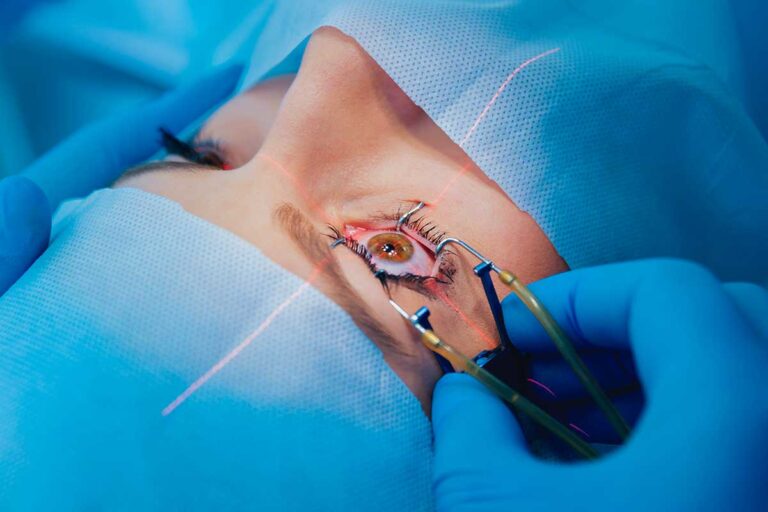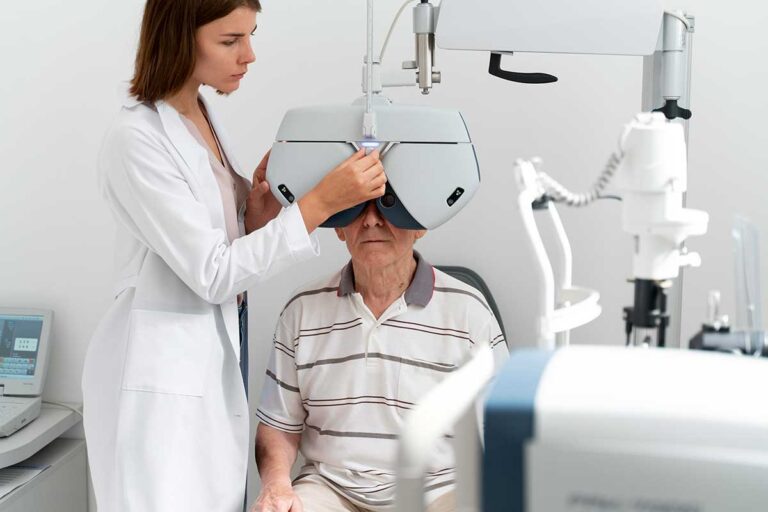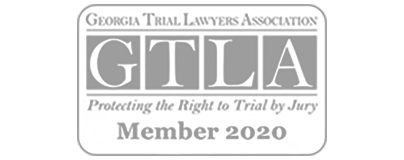Georgia Ophthalmologist Malpractice Lawyer
Visiting an optometrist or ophthalmologist is generally a straightforward and brief process. However, if the treatment provided by an eye care professional leads to an injury, patients may pursue a medical malpractice claim to seek compensation for their suffering, pain, and other related damages. If you have experienced a preventable injury due to negligent eye care, reach out to a qualified Georgia ophthalmologist malpractice lawyer.
The Jewkes Law Firm possesses decades of expertise in advocating for clients who have experienced neglient eye care. Our medical malpractice attorneys are available around the clock to discuss your situation. You can reach us at (770) 771-5130 or get in touch with us online to consult with a lawyer. Your first consultation is complimentary. And, you will not incur any fees unless we secure a victory on your behalf.
Suffering From An Eye Injury? Contact Us For A Free Consultation
Suffering From An Eye Injury?

What Is an Ophthalmologist?
Individuals typically visit eye care professionals to ensure their ocular health is intact and to address any symptoms that may suggest an underlying issue. Referrals from general practitioners to specialists in eye care are also common.
There are two primary categories of eye care professionals: optometrists and ophthalmologists. Optometrists focus on providing comprehensive eye care. This includes conducting vision assessments, monitoring for health conditions such as diabetes, and managing glaucoma. Optometrists are equipped to handle a variety of basic eye care tasks. However an ophthalmologist may need to be consulted for advanced eye treatments.
Ophthalmologists, on the other hand, are highly trained specialists with extensive education in the field of eye health, disease management, and treatment options. Their training extends beyond board certification, requiring ongoing education to stay current with advancements in ocular medicine. Unlike optometrists, ophthalmologists possess the qualifications to diagnose complex conditions, such as glaucoma and diabetes.
A key distinction of ophthalmologists is their ability to perform surgical interventions on the eyes. This includes procedures to correct strabismus (crossed seyes), cataract removal, glaucoma treatment, and more. They are also licensed to conduct LASIK eye surgery. In certain instances, ophthalmologists may also engage in cosmetic procedures, such as eyelid surgery to enhance appearance or remedy drooping eyelids.
In summary, ophthalmologists, as medical doctors, are the ones who diagnose eye diseases and perform eye surgeries. Optometrists serve as eye care providers with different qualifications.

Common Types of Ophthalmological Malpractice
Like all medical practitioners, ophthalmologists can be held accountable for malpractice when their actions lead to unnecessary harm to patients.
A prevalent form of malpractice in this field is related to cataract surgery. Mistakes made during this procedure can result in significant eye injuries or even permanent vision loss.
Prior to undergoing eye procedures such as LASIK or cataract surgery, it is essential for the doctor or their representative to obtain informed consent from the patient. If the physician fails to secure this consent and the patient suffers an injury, a malpractice claim may be pursued against the physician. The information provided about surgical risks must be comprehensive and presented in a manner that is easily understood by the patient.
Another frequent malpractice issue arises when an eye doctor fails to diagnose a pre-existing eye disease or condition during a routine examination, leading to a deterioration of the patient’s health. Delayed treatment can cause serious damage to the eyes. For instance, if a patient visits an emergency room suspecting retinal detachment, immediate intervention is crucial. Failure to properly address this condition can result in severe visual impairment. Moreover, this may serve as grounds for a malpractice lawsuit against the healthcare providers involved.
Lastly, any procedure involving the eye carries an inherent risk of infection, which poses a threat to other bodily systems, including the brain. It is therefore imperative that ophthalmologists and their staff adhere to stringent sterilization protocols. Neglecting these practices that leads to infection can result in legal liability for the medical personnel involved.
Proving Ophthalmological Malpractice in Georgia
To successfully initiate a medical malpractice lawsuit against an ophthalmologist in Georgia, it is essential to establish that negligence occurred. Four fundamental criteria must be demonstrated to establish the legal concept of “negligence.”
Duty of Care
Medical practitioners must uphold a “duty of care” toward their patients, which requires them to take all reasonable precautions to prevent harm.
Breach of Duty
If an ophthalmologist fails to take appropriate measures to prevent harm, they are considered to have breached their duty. This breach is typically substantiated through testimonies from other medical professionals who would have acted differently under similar circumstances.
Causation
A mere breach of duty is insufficient to prove negligence. It is also necessary to establish that the injuries sustained were directly caused by the ophthalmologist’s mistakes or actions.
Damages
It is crucial to demonstrate that the injury resulted in quantifiable financial losses. These damages may encompass additional medical expenses, lost wages, diminished earning capacity, among others.
A Georgia ophthalmologist malpractice attorney can also seek compensation for additional damages once these elements are established. These may include loss of life enjoyment, disfigurement, emotional distress, pain and suffering, and permanent disabilities.
In exceptional cases, your attorney may also request punitive damages. However, the threshold for obtaining such damages is quite stringent. O.C.G.A § 51-12-5.1 requires that the ophthalmologist’s conduct exhibited “willful misconduct, malice, fraud, wantonness, oppression,” or “conscious indifference to consequences.”

Reach Out to a Georgia Ophthalmologist Malpractice Lawyer Today
If you have sustained injuries while receiving care from an eye doctor, it is crucial to seek legal assistance from a knowledgeable personal injury lawyer.
At the Jewkes Law Firm, we offer a complimentary initial consultation to discuss your situation. Should we agree to represent you, we will diligently develop a case regarding your injuries and pursue financial compensation on your behalf.
During the discovery phase, we will gather all pertinent evidence and meticulously review relevant documents. This includes the doctor’s notes, records from hospitals or outpatient clinics, nurses’ notes, and any other materials that may be significant to your case.
We may also obtain sworn testimony from your doctor regarding the execution of your procedure. This process necessitates the expertise of attorneys well-versed in medical and technical matters. Additionally, we might engage expert witnesses to articulate the expected standard of care for your treatment and highlight where it fell short.
Medical malpractice claims, particularly those against ophthalmologists, can be quite intricate. Our legal team boasts decades of experience in holding healthcare professionals accountable for preventable mistakes and the resulting harm.
We are available around the clock to discuss your case. Reach out to us at (770) 771-5130 or contact us online to connect with a Georgia ophthalmological malpractice lawyer. Your initial consultation is FREE. We operate on a contingency fee basis, meaning we don’t charge unless we secure a victory for you.
GET A FREE CASE REVIEW
PRACTICE AREAS
AREAS WE SERVE
Frequently Asked Questions?
Do I need a personal injury attorney?
The Jewkes Firm is well-versed in effectively challenging major insurance companies on your behalf to secure the highest settlement permissible by law. Our primary objective is to ensure your optimal recovery. It is only after this point that we assess the worth of your case.
What is the deadline for filing an injury case in Georgia?
The timeframe for filing an injury case, also known as the statute of limitations, can vary significantly. As per OCGA §9-3-33, you are granted a two-year period from the date of your injuries or the passing of a family member to initiate your personal injury claim.
What is the cost to hire a personal injury attorney?
There is no upfront cost associated with hiring a personal injury lawyer. Our fees are based on a percentage of your settlement, meaning you only pay if we successfully recover compensation. Our top priority is ensuring your well-being and helping you return to your normal life.
What damages can you recover from a personal injury?
A personal injury lawyer aims to establish negligence and seek restitution for the harm caused by the liable party. Additionally, you may be entitled to compensation for funeral costs, medical expenses, and income lost if you are a family member of someone who died as a result of an injury.
Free Case Evaluation












